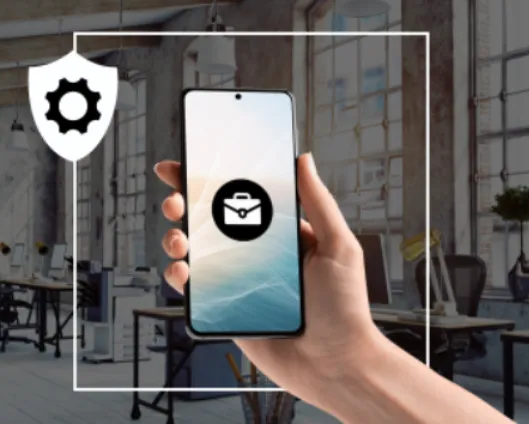In today’s digital world, mobile devices like smartphones, laptops, and tablets have become essential tools in the workplace. They enable employees to work efficiently and access critical data from anywhere. However, with the increasing reliance on these devices, businesses also face rising risks, including data breaches and device misuse. This is where Mobile Device Management (MDM) steps in, offering a solution to ensure security, compliance, and smooth management of devices in the workplace.
What is Mobile Device Management (MDM)?
Mobile Device Management (MDM) refers to the administration of mobile devices within a company’s network. It involves controlling, monitoring, and securing devices such as phones, tablets, and laptops. Through MDM, administrators can apply various security measures and policies to ensure devices are configured correctly and running up-to-date software. MDM can be implemented through cloud-based services, either as Software-as-a-Service (SaaS) or an on-premises solution.
Key Features and Benefits of MDM
MDM is widely used across industries for various purposes. Some of its most significant functions include:
1. Security and Compliance
One of MDM’s core functions is to safeguard mobile devices from cyber threats such as malware, viruses, and unauthorized access. This protection is vital in maintaining the security of sensitive data, especially in compliance-heavy industries. MDM solutions often include features like two-factor authentication, data encryption, and remote wipe capabilities, helping businesses adhere to privacy regulations such as GDPR, HIPAA, and PCI-DSS.
2. Bring Your Own Device (BYOD) Management
Many businesses allow employees to use their personal devices for work purposes, known as Bring Your Own Device (BYOD). While this boosts convenience, it raises security and privacy concerns. MDM helps companies manage this policy by setting clear boundaries between personal and work data, ensuring that sensitive information remains protected without infringing on employee privacy.
3. App Management
Managing the wide variety of applications that employees use on their mobile devices can be a complex task. MDM provides businesses with tools to control app usage on company devices. Administrators can monitor which apps are installed, restrict downloads, ensure necessary updates are applied, and enforce policies around app usage to prevent security vulnerabilities.
4. Device Provisioning & Enrollment
MDM solutions make it easier for companies to onboard new devices. Whether it’s setting up a new phone for an employee or provisioning a fleet of devices, MDM streamlines the process. It ensures that all devices meet security standards and are properly enrolled in the company’s network, which is especially important for BYOD policies.
5. Remote Management
Remote work has become more prevalent, and with it, the need for businesses to manage devices outside of the traditional office setting. MDM allows administrators to remotely access and manage devices, offering functionalities like remote locking, wiping data, or providing temporary access to apps. This helps businesses respond quickly to incidents like device theft or misuse, ensuring data remains secure even when devices are off-site.
6. Performance Monitoring & Reporting
MDM systems enable administrators to monitor device usage in real-time, providing insight into how devices are being used and flagging any potential issues or suspicious activity. This not only helps with security but also assists businesses in identifying trends and optimizing the use of company devices. MDM ensures that managers can maintain control without the need for constant oversight, providing a balance between employee autonomy and business needs.
Why MDM is Essential for Modern Businesses
With mobile devices being integral to today’s business operations, it’s no longer a question of if a company will need Mobile Device Management, but when. As mobile devices become more widespread and the potential for security breaches increases, MDM provides businesses with the tools they need to protect their data, streamline operations, and manage their technology effectively.
By adopting MDM solutions, businesses can enhance security, ensure compliance with regulations, and improve overall productivity. Whether it’s managing BYOD policies, securing devices, or monitoring app usage, MDM plays a crucial role in modern enterprise management.







